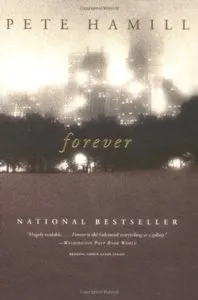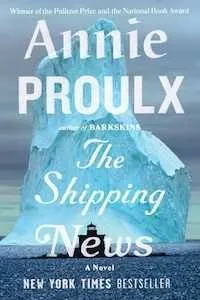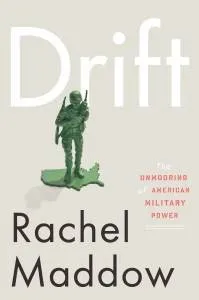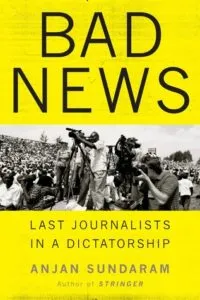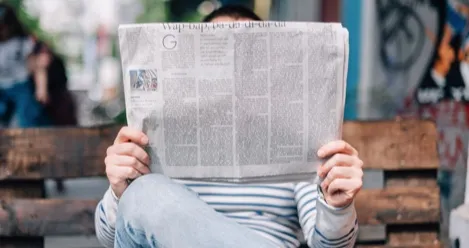
Read Harder: A Book by a Journalist or About Journalism
This content contains affiliate links. When you buy through these links, we may earn an affiliate commission.
The 2019 Read Harder Challenge is sponsored by the Read Harder Journal. Get the full list of tasks here.
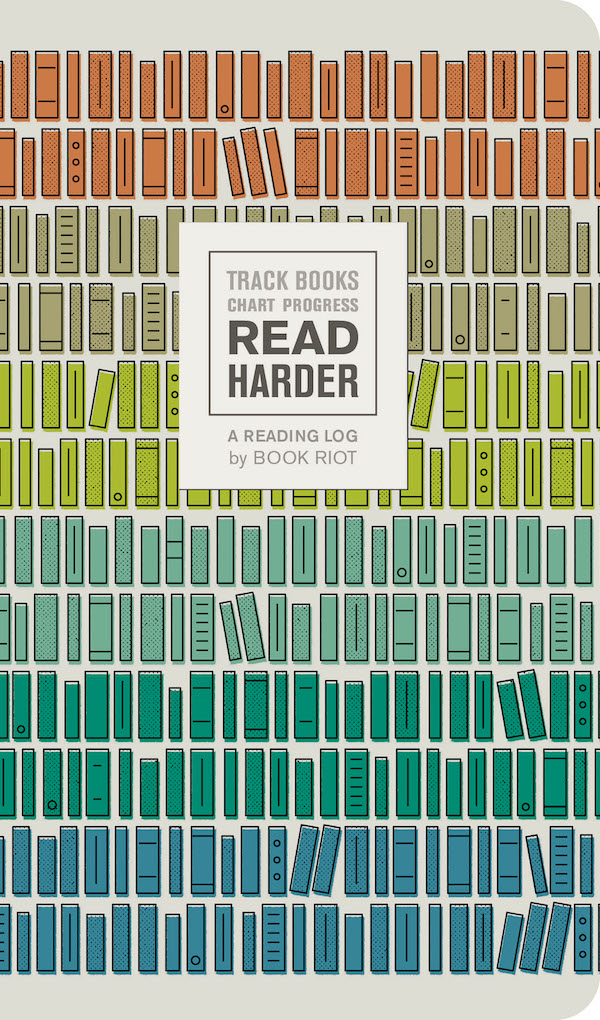 Created by Book Riot, this smartly designed reading log consists of entry pages to record stats, impressions, and reviews of each book you read. Evenly interspersed among these entry pages are 12 challenges inspired by Book Riot’s annual Read Harder initiative, which began in 2015 to encourage readers to pick up passed-over books, try out new genres, and choose titles from a wider range of voices and perspectives. Indulge your inner book nerd and read a book about books, get a new perspective on current events by reading a book written by an immigrant, find a hidden gem by reading a book published by an independent press, and so much more. Each challenge includes an inspiring quotation, an explanation of why the challenge will prove to be rewarding, and five book recommendations that fulfill the challenge.
Created by Book Riot, this smartly designed reading log consists of entry pages to record stats, impressions, and reviews of each book you read. Evenly interspersed among these entry pages are 12 challenges inspired by Book Riot’s annual Read Harder initiative, which began in 2015 to encourage readers to pick up passed-over books, try out new genres, and choose titles from a wider range of voices and perspectives. Indulge your inner book nerd and read a book about books, get a new perspective on current events by reading a book written by an immigrant, find a hidden gem by reading a book published by an independent press, and so much more. Each challenge includes an inspiring quotation, an explanation of why the challenge will prove to be rewarding, and five book recommendations that fulfill the challenge.
Before the current presidential administration declared a war on journalists and began calling the media an enemy of the people, journalism was considered a dying business. With most people seeking news on social media or other digital outlets that were decidedly not behind a paywall, media, and, with it, journalism was—as of five years ago—a dying industry. In what is probably a too-optimistic silver lining view of the situation, I hope/believe that Trump’s outright war on the media has caused more people to actually seek out reputable journalism and to pay for it. But Journalism as a profession with a capital J isn’t necessarily one we’re thinking about explicitly as under fire. Reporters, editors, photographers, and production people (along with a huge swath of other journalism-adjacent jobs) are still working hard to put out news in its various forms on a variety of platforms. And lots of them are writing books on the side.
To help fill your task to read a book by a journalist or about journalism, I’ve broken down the recommendations into fiction and nonfiction, and I will indicate in the descriptions whether the author is a journalist and if the book is about journalism.
But Journalism as a profession with a capital J isn’t necessarily one we’re thinking about explicitly as under fire. Reporters, editors, photographers, and production people (along with a huge swath of other journalism-adjacent jobs) are still working hard to put out news in its various forms on a variety of platforms. And lots of them are writing books on the side.
To help fill your task to read a book by a journalist or about journalism, I’ve broken down the recommendations into fiction and nonfiction, and I will indicate in the descriptions whether the author is a journalist and if the book is about journalism.
I can’t begin this list without including one of my very favorite books of all time. Pete Hamill is a New York City journalist with a long and storied career that began in the 1960s as a reporter for the New York Post. Hamill puts this deep love and knowledge of NYC to use in this epic love story to the city. Cormac O’Connor is granted immortality as long as he never leaves the island of Manhattan, and through his eyes, we meet New York—a beautiful and complicated character in its own right.
Whitehead’s sophomore novel following The Intuitionist, this book is on one hand a reimagining of the story of John Henry, and on the other it’s about a disaffected, middle-aged black journalist on a mission to set a record for junketeering who attends the annual John Henry Days festival. And before you get an idea that Whitehead suffered from Second Novel Syndrome, which is why this is not one of his more well-known novels, John Henry Days was a Pulitzer Prize finalist. Well worth the backlist exploration.
Winner of the Pultizer Prize, Proulx’s second novel follows Quoyle, a “third-rate newspaper hack,” and his two daughters as they decamp to Newfoundland after his cheating wife gets her due. Trying to cobble together a new life, Quoyle takes a job as a reporter on the shipping news beat for his local weekly paper, and in the process confronts his past and his family’s future.
Though it was published in 2012 (which seems like a lifetime ago in political time), Rachel Maddow’s examination of America’s strange comfort with perpetual war and the systems set up to support this ongoing militaristic state is still relevant and powerful. If you’re a fan of Maddow’s from her MSNBC role, you’ll find the same serious tone cut with wit and humor in this slim volume.
As a journalist training other journalists in the capital city of Rawanda in the wake of the country’s genocide, Sundaram pulls apart the layers of a government that still punishes the voices of dissent, despite its reputation of regrowth.
The other half of the reporting team (with Ronan Farrow) that broke the Harvey Weinstein story for The New Yorker, Mayer is a formidable journalist in her own right, a skill that’s fully on display in this frankly terrifying dive into the funders of Republican politics. The Koch brothers are just the tip of the iceberg, and Mayer pulls apart the strings of this very knotty knot to uncover the money and influence that helped lead to the rise of politicians like Donald Trump (and most of the GOP). You’ll want to put this book in the freezer, it’s that scary.
For more recommendations, check out these other Book Riot posts (don’t forget that not all books in these posts may fit the task prompt):
50 Great Narrative Nonfiction Books
6 Works of Narrative Journalism
 Created by Book Riot, this smartly designed reading log consists of entry pages to record stats, impressions, and reviews of each book you read. Evenly interspersed among these entry pages are 12 challenges inspired by Book Riot’s annual Read Harder initiative, which began in 2015 to encourage readers to pick up passed-over books, try out new genres, and choose titles from a wider range of voices and perspectives. Indulge your inner book nerd and read a book about books, get a new perspective on current events by reading a book written by an immigrant, find a hidden gem by reading a book published by an independent press, and so much more. Each challenge includes an inspiring quotation, an explanation of why the challenge will prove to be rewarding, and five book recommendations that fulfill the challenge.
Created by Book Riot, this smartly designed reading log consists of entry pages to record stats, impressions, and reviews of each book you read. Evenly interspersed among these entry pages are 12 challenges inspired by Book Riot’s annual Read Harder initiative, which began in 2015 to encourage readers to pick up passed-over books, try out new genres, and choose titles from a wider range of voices and perspectives. Indulge your inner book nerd and read a book about books, get a new perspective on current events by reading a book written by an immigrant, find a hidden gem by reading a book published by an independent press, and so much more. Each challenge includes an inspiring quotation, an explanation of why the challenge will prove to be rewarding, and five book recommendations that fulfill the challenge.
Before the current presidential administration declared a war on journalists and began calling the media an enemy of the people, journalism was considered a dying business. With most people seeking news on social media or other digital outlets that were decidedly not behind a paywall, media, and, with it, journalism was—as of five years ago—a dying industry. In what is probably a too-optimistic silver lining view of the situation, I hope/believe that Trump’s outright war on the media has caused more people to actually seek out reputable journalism and to pay for it.
 But Journalism as a profession with a capital J isn’t necessarily one we’re thinking about explicitly as under fire. Reporters, editors, photographers, and production people (along with a huge swath of other journalism-adjacent jobs) are still working hard to put out news in its various forms on a variety of platforms. And lots of them are writing books on the side.
To help fill your task to read a book by a journalist or about journalism, I’ve broken down the recommendations into fiction and nonfiction, and I will indicate in the descriptions whether the author is a journalist and if the book is about journalism.
But Journalism as a profession with a capital J isn’t necessarily one we’re thinking about explicitly as under fire. Reporters, editors, photographers, and production people (along with a huge swath of other journalism-adjacent jobs) are still working hard to put out news in its various forms on a variety of platforms. And lots of them are writing books on the side.
To help fill your task to read a book by a journalist or about journalism, I’ve broken down the recommendations into fiction and nonfiction, and I will indicate in the descriptions whether the author is a journalist and if the book is about journalism.



